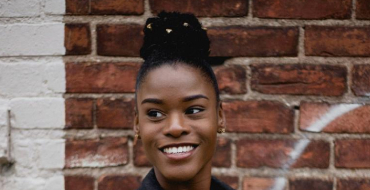What Can You Eat With Braces?
A great way to transform your smile is with the help of braces. With braces comes a lot of responsibility, including maintaining good oral hygiene and healthy eating habits. Following dietary guidelines can help you avoid damaging your braces and compromising your oral health. If you are considering braces, you may wonder what can you eat with braces and what to eat first week with braces. In this article we will discuss specific foods to eat and avoid with braces.

What to Eat During First Week With Braces and Beyond
What to eat first week with braces? As with anything that is new to you for the first time, a period of adjustment is often necessary. It often takes individuals a couple days to get used to the braces after they are initially placed, but choosing to eat certain foods during this time can help make your adjustment easier. It is recommended to consume soft foods that don’t require much chewing during your first week with braces and beyond. Recommended food for braces include:
- Yogurt
- Oatmeal
- Soft fruits (i.e. bananas, kiwi, berries without seeds)
- Soft vegetables (i.e. peas, avocado, beans, squash)
- Scrambled eggs
- Soups
- Pasta
- Seafood
- Mashed potatoes
- Soft cheeses
Comfort Foods: Choosing Soft Options for Braces
As you adjust to your new braces, you may experience oral sensitivity. Optimizing comfort with braces is essential, and the foods you choose to eat can help. Comfortable and soft foods to eat with braces include:
- Mashed potatoes with cheddar
- Oatmeal with bananas
- Chicken noodle soup
- Butternut squash souffle or soup
- Scrambled eggs
- Apple sauce
- Buttermilk pancakes
- Macaroni and cheese
- Salmon
- Pudding
- Soft, cooked rice
- Soft-cooked beans
Foods to Be Careful With
There are some foods that can still be eaten with braces but require caution. As mentioned, softer foods should be eaten for the first week or so after braces. But, certain soft foods can cause sensitivity during this time and should be eaten carefully. This includes ice cream, citrus fruits, and soft spicy foods.
So, how long after getting braces can you eat solid food? After around three to four days, you should be able to begin consuming solid food. You can minimize discomfort by chewing slowly and using your back teeth.
The No-Go Foods: Protecting Your Braces
If you love sweets, you may be asking, ‘what candy can you eat with braces?’ Candy tops the list of what can't you eat with braces. Not only does candy increase your risk of getting cavities, it also can lead to broken appliances and prolonged treatment times for those in orthodontic treatment. Other foods to completely avoid while wearing braces include:
- Corn on the cob
- Crunchy vegetables (i.e. celery, carrots, peppers)
- Crunchy Fruits (i.e. apples, pears)
- Pizza crust
- Popcorn
- Nuts
- Ice
- Hard breads
- Chips
- Pretzels
- Pickles
Eating Right with Braces
Having braces is the perfect time to adapt healthy dietary habits that can stick with you long after your braces are removed. Create a diet plan that includes daily serving recommendations of fruits, vegetables, whole grains, healthy protein, healthy oils, and water. Do your best to limit your consumption of sugary foods and drinks like dessert, breakfast cereals, soda, juice, and sports drinks. Sugars are used by bacteria to create harmful acids that destroy tooth enamel in the form of dental plaque.
Eating Well with Dietary Needs
If you have special dietary needs, such as those who are vegetarian, vegan, have allergies to certain foods, or follow other specific dietary guidelines, can still maintain healthy eating habits with braces. Individuals with specific dietary needs should keep in mind that hard protein foods and raw vegetables should be avoided while braces are on. Also, acidic foods such as citrus fruits, vinegar, and tomato-based products can increase the risk of eroding dental enamel and should be consumed cautiously. If dairy is excluded from your diet, it is important to maintain adequate consumption of both vitamin D and calcium. These vitamins and minerals can be found in soy yogurt, beans, lentils, peas, seaweed, spinach, kale, cabbage, broccoli, okra, Bok choy, Brussel sprouts, mushrooms, tofu, and oranges.
Quick Fixes for Common Braces Complications
Keeping your teeth clean with braces will help prevent oral issues and enhance the success of your treatment. To avoid bacterial plaque build-up on your teeth, gums, and around your braces, you should make sure you are regularly brushing, flossing, and visiting the dentist throughout your orthodontic treatment. You should brush after every meal and before going to sleep. If you are unable to brush after a meal on-the-go, rinse your mouth thoroughly with water until you can brush again. An electric toothbrush can be very effective and efficient in removing dental plaque around braces and on your teeth. You may need to brush a little longer than the traditional two minutes to ensure all food particles are removed. Use a fluoride-containing toothpaste to help protect your tooth enamel.
Flossing is essential for removing bacteria between your teeth and underneath the gum line. Orthodontic floss threaders or Super Floss, like Oral-B Glide Pro-Health Threader Floss, are special-made to make flossing easy for individuals with braces and other oral appliances. When you are done with your oral hygiene routine, inspect your teeth to make sure they are clean and that none of the braces are loose or broken.
Stay Proactive with Your Orthodontic Care
Having braces requires commitment. Make sure to keep all of your orthodontic appointments to avoid harming your teeth and increasing your treatment time. Be sure to follow all of your orthodontist’s instructions regarding your treatment. If you experience any problems, like a broken bracket, inform your orthodontist right away. If you have any questions or concerns about your braces, even regarding dietary advice, let your orthodontist know. If you are interested in perfecting your smile, Great Lakes Family Dental offers exceptional comprehensive orthodontic care for your entire family. Schedule an appointment for a consultation today at one of our convenient locations.
Quick Review
If you will soon have or are new to getting braces, you may be asking, ‘what can you eat with braces?’ There is a universal list of common approved foods and foods to avoid with braces. Foods that are hard, sticky, extra chewy, acidic, and high in sugars can damage your teeth, gums, and even your braces. Being mindful choosing what foods to eat while you have braces on is important for successful treatment and a healthy smile.




